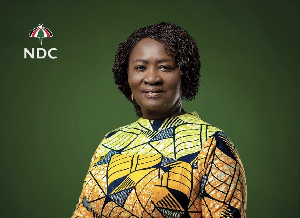 The training course was held virtually from 18th January 2021 to 5th February 2021
The training course was held virtually from 18th January 2021 to 5th February 2021
The University of Ghana School of Law has concluded its three-week intensive COVID-19 Responsive Capacity-Building Training Course for Civil Society Organisations.
The training course was held virtually from 18th January 2021 to 5th February 2021 with the aim of building the capacity of Civil Society Organisations (CSOs) to adapt their activities and advocacy strategies to the realities of the COVID-19 pandemic and the range of restrictions adopted by the government in response to the pandemic.
The training course brought together over sixty (60) participants from different Civil Society Organisations in the country. The first week of the training course covered the Historical, Conceptual and Regulatory Environment for CSOs in Ghana and the State of Democracy, Human Rights and Development in Ghana.
For the second week, instructors focused on the Democratic Relevance of CSOs, COVID-19 and State of Emergency and the Impact of Emergency Measures on Civic Engagement of CSOs. These modules are designed to highlight the relevance of civil society organisations (CSOs) in democratic states, assess the declaration of COVID-19 as a public health emergency of international concern by the WHO and the triggering of a state of emergency in Ghana, increase awareness of the impact of emergency measures on civic engagement and equip participants with strategies to confront the threats these measures pose to sustainable civic engagement.
The final week of the training course dealt with the Adaptation of Civic Engagement Strategies in a COVID-19 Environment, International Coalition-Building and Avenues for Funding/Financial Sustainability of CSOs in the face of the pandemic. Additionally, the discussions that took place during the previous weeks were summarised, thus provoking a debate over lessons learned by relevant actors such as the government and civil society actors – for example, what the government should have done differently to avoid the pandemic or minimise its impact and what civil society actors, in their watchdog role, should do going forward to avoid or minimise the impact of a future pandemic on the citizenry and on its functions.
According to Ms. Adubea Jennifer Hall, a faculty member and an instructor for the training course, “the modules were carefully structured to impart the needed knowledge and skills to participants for resilience in the face of the pandemic”.
Upon completing the training course, some participants expressed their satisfaction by way of a post-questionnaire survey. A trainee admitted that prior to the training course, he had the impression that it would be about legal jargon but soon realised he was wrong because the course content was practical, relatable and exceeded his expectations.
Another participant described the training modules as an excellent addition to his skillset and added that it would make a very positive impact on his work as a CSO leader.
A satisfied trainee said, “The course included a rich combination of practical cases, theories and frameworks as well as evidence from research. Though largely targeted at CSOs in Ghana, the inclusion of lessons and examples from other countries and the international community helped in enriching the course.
The facilitators were great; they complimented each other quite well. Further, the reference materials provided are a great resource that seems carefully selected and very relevant to us”.
On the whole, participants of the training course rated it as very comprehensive, interactive, well-resourced and excellently presented.
The COVID-19 Responsive Capacity-Building Training Programme for Civil Society Organizations training course is supported by Deutsche Gesellschaft für Internationale Zusammenarbeit (GIZ) GmbH under the Democratic Vigilance Project. The Democratic Vigilance Project (DVP) comprises both mitigatory and proactive adaptative measures that will ensure that key democratic institutions are able to effectively respond to the ongoing pandemic, adapt to the new post-pandemic reality and prepare for future occurrences.
For further information about the project, kindly contact the Democratic Vigilance Project Team at dvproject@ug.edu.gh.












